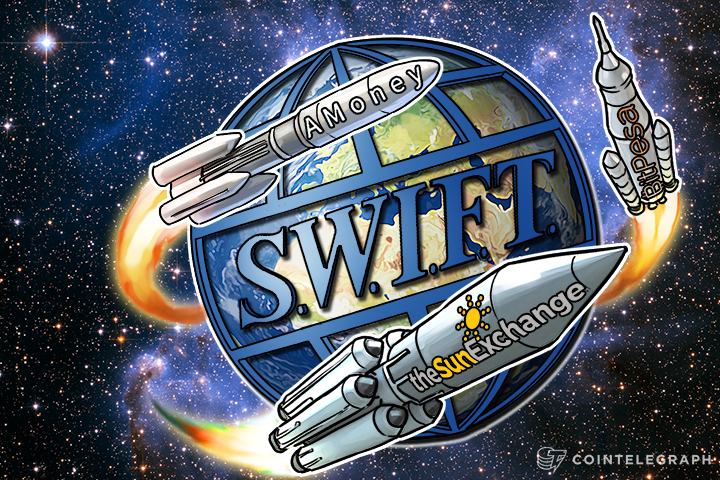African blockchain-related startups will pitch new products at SWIFT African Regional Conference in Mauritius on May 18.
Three African companies were selected by over one hundred judges from across the financial, technology, and investment communities. The total of 89 applications has been evaluated for the second edition of the Startup Challenge.
During the showcase, the audience will vote for the three best startups out of 12. Then, the companies will be invited to Sibos, SWIFT’s annual global financial services conference, taking place from 26-29 September in Geneva.
The three finalists will share the stage with FinTech experts, providing great insights on innovation happening on the ground in Africa to the financial industry at large.
AMoney focuses on remittances
AMoney uses a multi-rail technology to combine four rails: the AMoney protocol, the blockchain technology, the Ripple protocol and the Stellar protocol to enable large volume of low-value cross border payments and unify mobile wallets in Africa.
International remittances are a major and stable source of income for people in many developing markets. Some 80% of Africans don’t have a bank account or a credit card, but they do have a phone, and most of those will soon be a smartphone.
Also, despite one in seven African (120 millions) receiving remittances from friends and family abroad totalling USD 60 billion, Africans pay the highest transaction fees in the world.
Africa’s mobile wallets’ fragmentation presents AMoney with the significant opportunity to unify the structure of a fragmented e-commerce backbone. It takes advantage of the strong local footholds built by carriers to improve the almost non-existent cross-border payments capability.
BitPesa accepts Bitcoin
BitPesa has been offering a world-class platform to trade in digital currency. It is a localized solution for its users to participate directly in global finance with diversified financial tools.
BitPesa allows individuals and businesses to send payments to and from Kenya, Nigeria, Uganda, and Tanzania and accepts Bitcoin from nearly anywhere in the world and exchange it for local African currencies.
It enables recipients to receive local currency into mobile money wallets or bank accounts and also sells Bitcoin in its operational countries, except for Tanzania.
It recently closed a follow-on round of $1.1M in a second round of funding led by San Francisco-based Pantera Capital bringing its 2014 total equity to over $1.7M.
The raise was led by Pantera with support from the Crypto Currency Partners LP, Stephens Investment Management LLC, and existing shareholders: the Bitcoin Opportunity Corporation and Future/Perfect Ventures, among others.
The Sun Exchange deals with the energy issue
The Sun Exchange is a peer-to-peer lending platform which connects people wanting to invest in solar energy with people who want to access it.
Its platform promises to turn digital currency into solar energy with seamless international revenue distribution providing an earning of more than 10% annual returns in the process.
Energy is a huge issue in most parts of Africa.
The Sun Exchange platform presents the ability to look at alternative energy options with a really innovative and exciting funding mechanism. It hosts solar projects worldwide for interested investors to choose for a portfolio.
All the investor needs is a bank account or a Bitcoin wallet and web access.
An investor’s wealth increases whilst doing good - crowd-investing money for community centers, schools, businesses, factories and even whole neighbourhoods to achieve their goals of going solar and reducing running costs.
